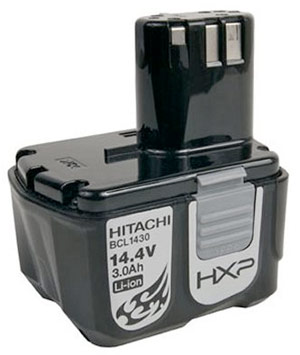Hitachi Wizardry Could Lead To Batteries Lasting Twice As Long
We've been playing with Apple's iPad over the past few days (expect a
full review soon), and we're amazed by the battery life. But as tech
enthusiasts, we're always yearning for more. Hitachi seems to agree
with us in thinking that there's really no battery that lasts long
enough, and their R&D lab has been working away in an attempt to
double the life of convention Li-ion batteries that are used in
everything from notebooks to vehicles.
A Japanese report notes that the company is using a manganese positive-electrode material to extend the life, with specifics as follows: 1) replacing part of the manganese contained in the positive-electrode material with another element to stabilize the crystal structure and 2) adding an acid-resistant composite oxide (an oxide that contains more than one metallic element) to the positive-electrode material to reduce the elution of manganese into the electrolyte.

Best of all, Hitachi has created a prototype of the device already, and the conclusion they have drawn is that this technique makes it possible to realize a battery whose "capacity decreases at half the rate and whose life is twice as long (more than 10 years) compared with the company's existing battery cell." It's expected that the new material, if turned into something commercial, would mainly be used for storing energy at renewable energy-based power plant, but there's nothing stopping this from filtering into the world of consumer tech in the future.
Will the next generation iPad last for 20 hours instead of ten? Thanks to Hitachi, we can hope.
A Japanese report notes that the company is using a manganese positive-electrode material to extend the life, with specifics as follows: 1) replacing part of the manganese contained in the positive-electrode material with another element to stabilize the crystal structure and 2) adding an acid-resistant composite oxide (an oxide that contains more than one metallic element) to the positive-electrode material to reduce the elution of manganese into the electrolyte.

Best of all, Hitachi has created a prototype of the device already, and the conclusion they have drawn is that this technique makes it possible to realize a battery whose "capacity decreases at half the rate and whose life is twice as long (more than 10 years) compared with the company's existing battery cell." It's expected that the new material, if turned into something commercial, would mainly be used for storing energy at renewable energy-based power plant, but there's nothing stopping this from filtering into the world of consumer tech in the future.
Will the next generation iPad last for 20 hours instead of ten? Thanks to Hitachi, we can hope.

